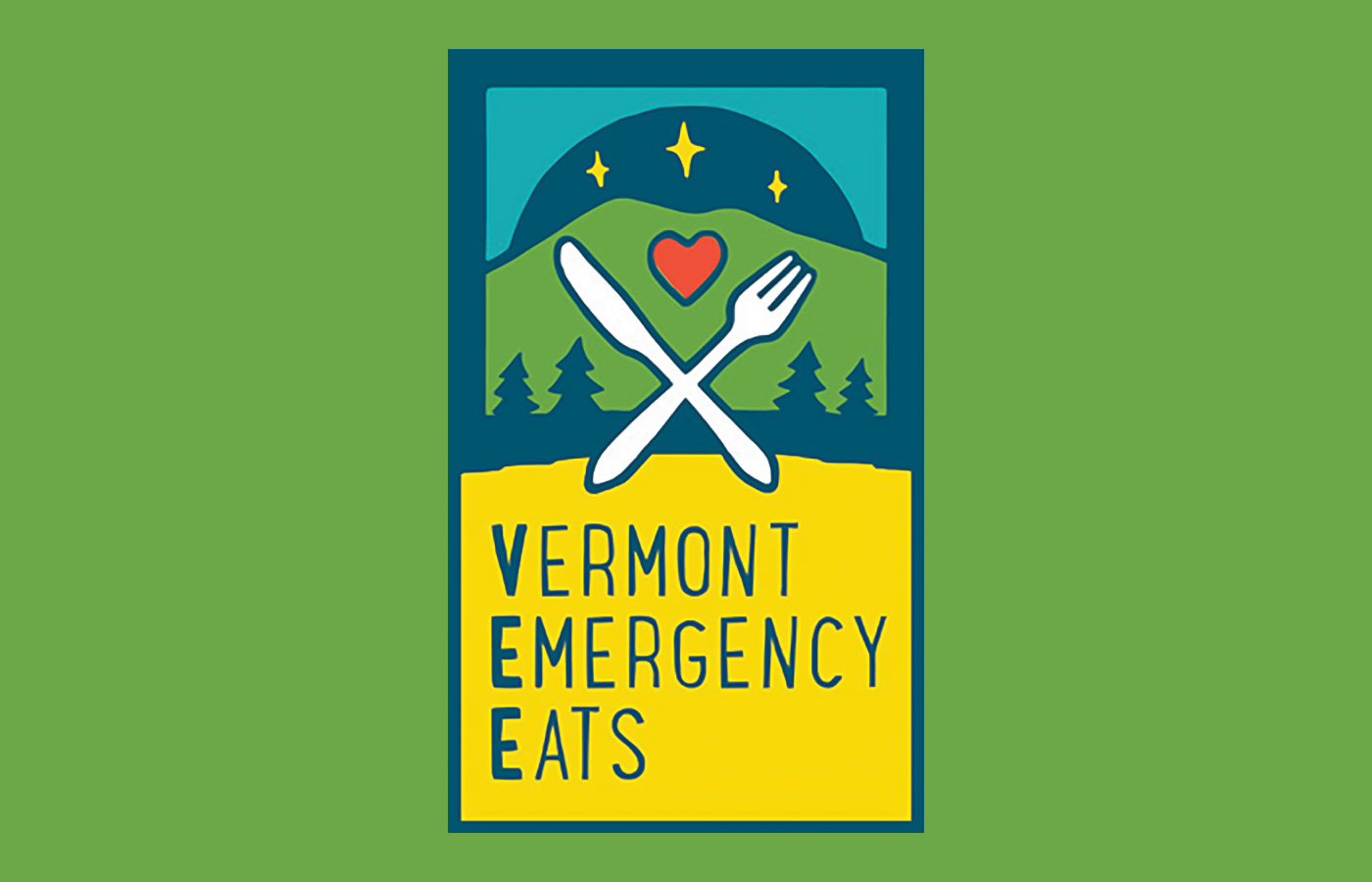Vermont Emergency Eats
In March 2020, Chris Meyer cofounded Chester Helping Hands with chef Jason Tostrup. The duo prepared and served 28,000 free community meals from March to July 2020. Those meals helped inspire the Vermont Everyone Eats program that launched in August 2020 and ran through March 31, 2023. Over the course of those 34 months, 3.9 million meals were served, keeping Vermonters fed during the pandemic.
“Everyone Eats was a remarkably innovative and successful program, and we realized we could reboot it to provide targeted relief for communities impacted by the flood,” says Chris. “Southeastern Vermont Community Action (SEVCA) had a template and people and partners around the state who were ready to provide meals to populations hit by the flood. The state got on board, and Emergency Eats began on August 7 and has been extended to run through November 4.”
Vermont Emergency Eats (VEE) currently serves more than a dozen communities around the state including Montpelier, Barre, Hardwick, Johnson, Marshfield, Ludlow, Weston, Londonderry, Mount Holly, Plymouth, and Cavendish. SEVCA coordinates with partnering agencies in hubs around the state to provide meals through various channels. Meals are produced by local restaurants, which are encouraged to use Vermont-grown and -produced ingredients, which helps to ensure that the funding benefits three groups of Vermonters: meal recipients, local restaurants, and small farmers/food producers.
In Ludlow, the local hub distributes meal vouchers that people can use in participating restaurants in that area. Eligible individuals can receive two vouchers per day. VEE has the capacity to provide 90,000 meals to flood-impacted Vermonters over the course of 90 days. The program is funded by the state’s Agency of Commerce and Community Development (ACCD), which acts as the fiscal agent. The state reimburses the restaurants for $10 per meal, just as they did during Everyone Eats.
Partnering agencies include countywide hubs such as Capstone Community Action in Chittenden, Lamoille, Orange, and Washington counties; Center for an Agricultural Economy and Green Mountain Farm to School in Caledonia and Orleans counties; Vermont Farmers Food Center in Rutland County; Springfield Family Center/Chester Helping Hands in Windham and Windsor counties; and the Giving Fridge in Addison County. Each hub engages local community organizations to help with distribution, such as Black River Good Neighbors in Ludlow and Neighborhood Connections in Londonderry and Weston.
“We’re fortunate that we learned so much during the pandemic. Those challenging years left us well prepared to respond with a program like this. We’re able to scale back and roll out a program for a smaller emergency. It could become a valuable tool in Vermont’s emergency tool kit. Engaging local restaurants to feed their communities meals made with local ingredients keeps money local. Ludlow, Johnson, and Marshfield lost their supermarkets. This program alleviates some of the burden temporarily for communities to work out their larger concerns. We’re feeding people so they can solve bigger problems, like getting their homes cleaned up and repaired, power restored, furnace and water fixed, and finding a new vehicle. It’s a stop-gap measure, but knowing two meals a day are covered feeds people’s bodies as well as their souls.”





